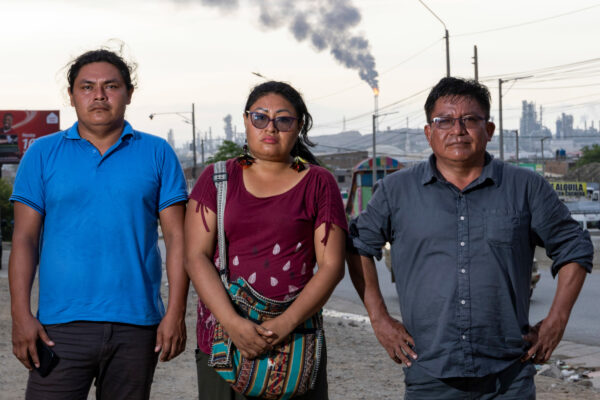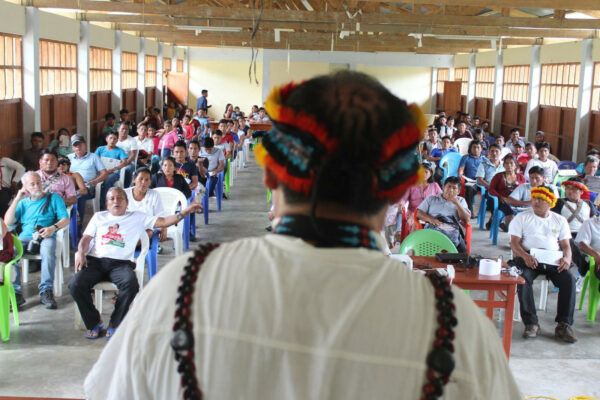With her backpack and duffle bag, she struggled aboard the aircraft, heading towards the cheaper seats in the rear. She inched past business travellers, who were settling in with drinks.
Among them, she noted, were several World Bank staffers working on the deal she hoped to delay – the $3.7bn Chad-Cameroon pipeline.
Korinna Horta of Environmental Defense has become a frequent flier. With cellphone in hand, she travels from capital to capital, mobilising opposition to projects she fears will damage the environment or people who have lived in harmony with it for centuries.
The same forces that spurred globalisation – improved communications and transportation – have also united its opponents: the so-called non-governmental organisations (NGOs) and their ‘civil society’ partners in the developing world.
Thanks to computers and faxes, NGOs in rich countries can plot strategies with NGOs in the developing world. One NGO, Amazon Watch, presented a video camera to U’wa Indians opposed to oil drilling on what they say are their lands in Colombia – they were able to film their own gassing by the Colombian Army, and Amazon Watch distributed the video to the press.
Ms Horta learned about the proposed Chad-Cameroon pipeline from a Swiss human rights activist with contacts on the diplomatic circuit. She then wrote a paper questioning the value of the project, which she says could destroy fishing and tourism in Cameroon. It was distributed among NGOs in Chad and Cameroon, which began gathering information. But relations between developed-country groups and civil society in the developing world are not always tension-free.
Local NGOs sometimes see wealthier allies as an obstacle to any development. The foreign NGOs depend on their local allies to lend them legitimacy, and they are more careful than in the past to give them the lead.
With funding from foundations as well as individuals, Project Underground has targeted individual companies on many levels.
“We believe endless pressure, endlessly applied, is the only thing that works,” said Danny Kennedy, a spokesman for the group in Berkeley, California.
Increasingly, groups are backing shareholder resolutions and disinvestment campaigns against offending oil companies. Operating in coalitions, these groups say they are winning victories.
Last year Project Underground, Amazon Watch and the Rainforest Action Network mounted 75 protests against Fidelity Investments, the largest shareholder in Occidental Petroleum, which is drilling in Colombia.
After receiving word that Fidelity had dumped more than 18m shares – 60 per cent of its Occidental holdings – it switched pressure to Sanford Bernstein & Co, and its parent company Alliance Capital, which became the largest shareholders in Occidental Petroleum.
Amazon Watch is a niche NGO – funded by other NGOs when it was formed in 1996 to monitor large projects in the Amazon. Private investment into the region was soaring, spurred by trade pacts and the vision of an integrated South America. This meant the building of new roads and power lines, often cutting swathes through the Amazon.
“We don’t think a small group like ours can stop this,” said Atossa Soltani, the group’s executive director. “But we get information to the communities, and they know we care about their social and economic rights.”
Governments, oil companies and their public relations could outgun any group. But Steve Kretzmann, a consultant with several of the groups, says the NGO alliances have created a movement that can only grow in strength. He said: “Anyone who doesn’t see the power of this movement wasn’t paying attention to Seattle last year.”













